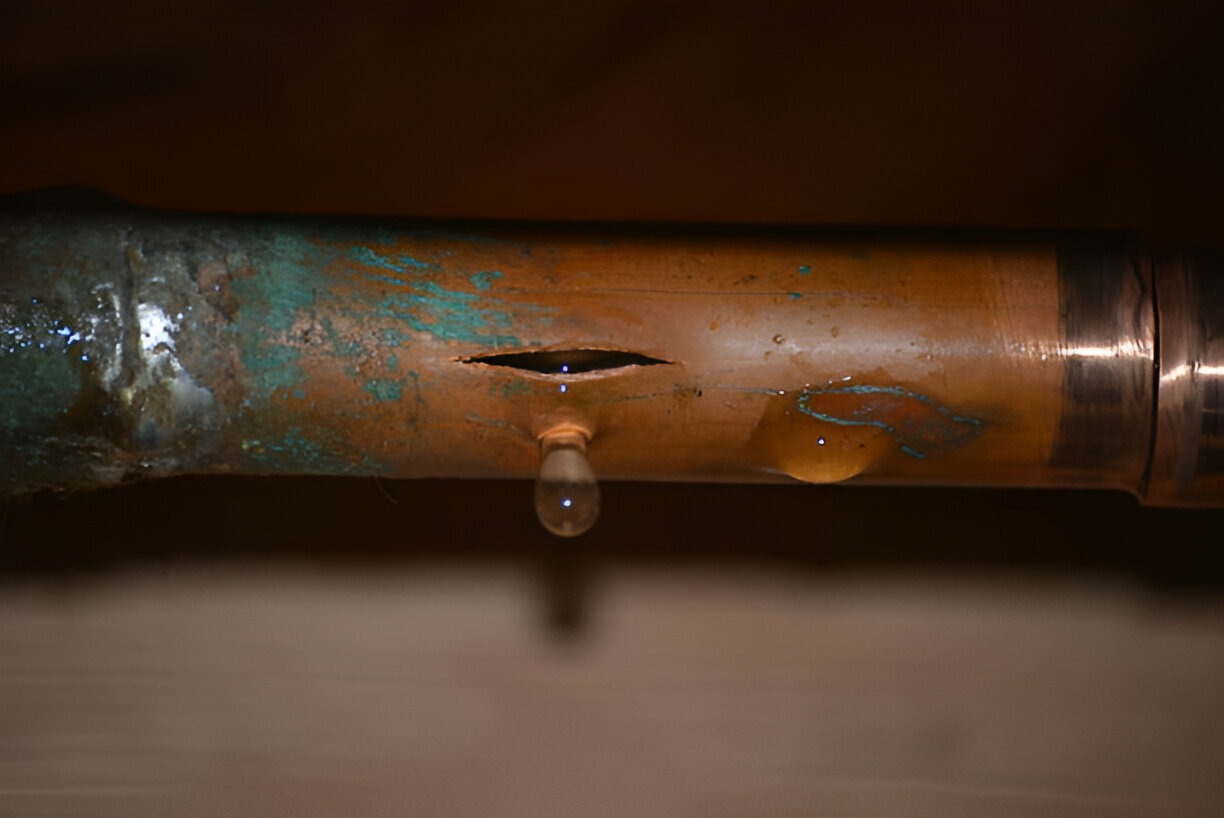The allure of winter is found in its pristine, snow-draped scenery and the cozy ambiance of fireside nights. Yet, hidden beneath winter’s enchanting facade is a lurking danger to your home’s plumbing: the risk of pipes freezing.
Frozen water in pipes can cause them to rupture, leading to water damage and expensive fixes. To keep your abode toasty, serene, and safeguarded against plumbing woes throughout the chilly season, here is an all-encompassing manual for averting the freeze of pipes, along with essential tips for winter plumbing maintenance.
Understanding the Risk of Frozen Pipes
Water expands as it freezes, creating pressure within pipes. When this pressure becomes too much for the pipes to bear, they can burst, leading to leaks and potential flooding.
The risks of frozen pipes are higher in areas where winter temperatures frequently drop below freezing. Vulnerable areas in your home include unheated basements, crawl spaces, attics, and exterior walls. It’s essential to take preventive measures to avoid such a scenario.
Winter Plumbing Tips to Prevent Frozen Pipes
1. Insulate Exposed Pipes
The most effective way to prevent frozen pipes is to insulate exposed plumbing. Insulation sleeves or wraps can be easily installed on pipes in unheated areas. This added layer of insulation helps maintain the water temperature within the pipes, reducing the risk of freezing.
2. Seal Cracks and Gaps
Seal any cracks, gaps, or openings in your home’s exterior that allow cold air to seep in. Use weather stripping or caulk to seal these openings around doors, windows, and foundation walls. This not only keeps your home warmer but also protects your pipes.
3. Disconnect and Drain Outdoor Hoses
Before the first frost, disconnect and drain outdoor hoses. Leave outdoor faucets open to allow any remaining water to drain. This prevents water from freezing in the faucets and pipes that lead to them.
4. Keep a Faucet Dripping
When temperatures plummet, it’s a good idea to keep one or more faucets in your home dripping with a slow, steady stream of water. This movement can help prevent freezing by keeping water circulating through the pipes.
5. Use Heat Tape
Heat tape is an electrical heating element that can be wrapped around pipes. It’s especially useful for preventing pipes from freezing in vulnerable areas. Make sure to follow the manufacturer’s instructions carefully when installing heat tape.
6. Maintain a Warm Temperature
Keep your home’s temperature consistent, especially when you’re away during the winter. While it may increase heating costs, maintaining a warmer temperature within your home can significantly reduce the chances of frozen pipes.
7. Open Cabinet Doors
If you have plumbing fixtures along exterior walls, like under sinks, open the cabinet doors to allow warm air to circulate around the pipes. This can be particularly helpful in kitchens and bathrooms.
8. Install an Emergency Pressure Release Valve
Consider installing an emergency pressure release valve in your plumbing system. This valve releases excess pressure before it reaches a critical point, potentially preventing pipe bursts.
9. Be Prepared for Extended Absences
If you plan to be away from your home during winter, take extra precautions. Shut off the main water supply and drain the plumbing system to prevent any water from freezing while you’re gone.
What to Do If Your Pipes Freeze
Despite your best efforts, pipes may still freeze. If this happens, follow these steps:
- Turn off the main water supply to prevent further water from entering the pipes.
- Open the faucet to relieve any pressure.
- Use a heat source like a hairdryer or heat lamp to thaw the frozen section of the pipe. Start at the faucet and work your way towards the frozen area.
- Do not use an open flame, as this can damage the pipe and lead to a fire hazard.
- Once the water starts flowing, leave the faucet open to ensure the pipe is completely thawed.
- Check for any leaks or damage. If you suspect a burst pipe, turn off the water supply and contact a professional plumber.
Conclusion
Preventing frozen pipes is vital to protecting your home from potential damage during the winter. By taking these proactive measures, you can enjoy a cozy, stress-free winter season while keeping your plumbing system in top shape.
Don’t let the cold threaten your home’s integrity; follow these tips to ensure a safe and comfortable winter.
